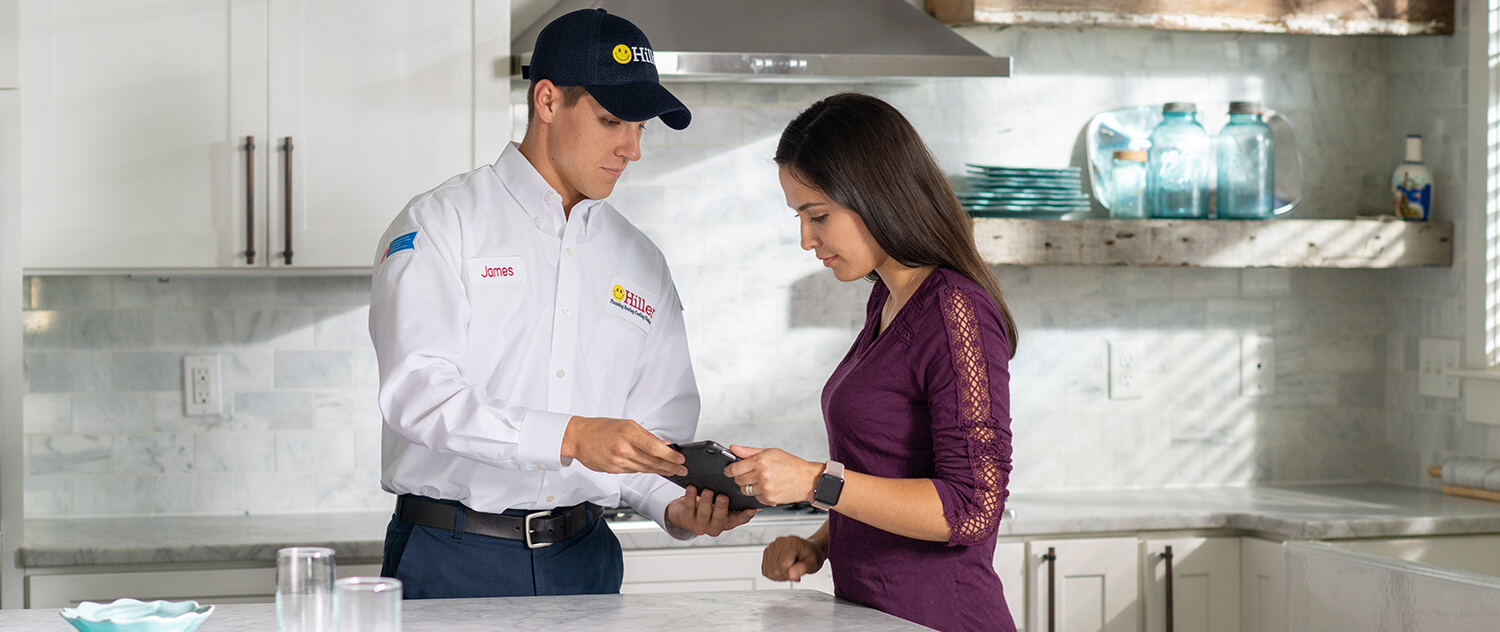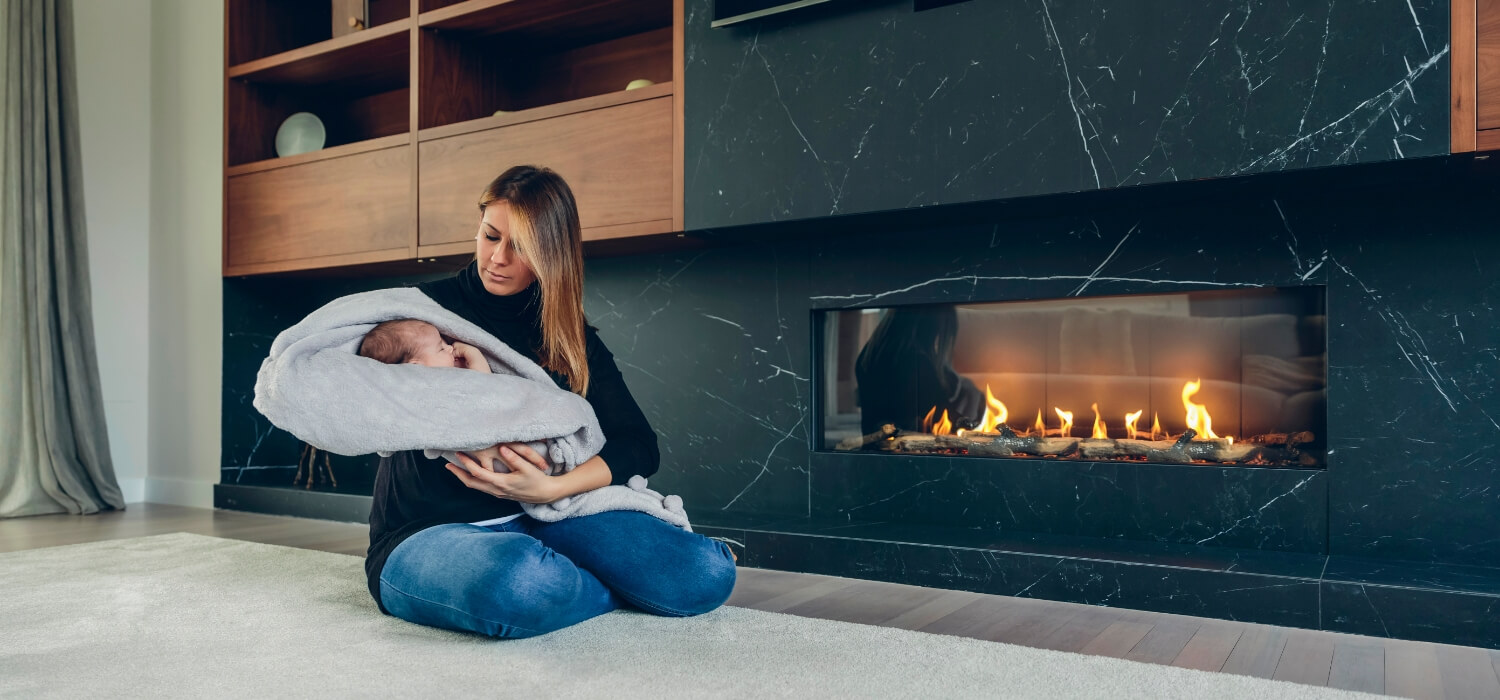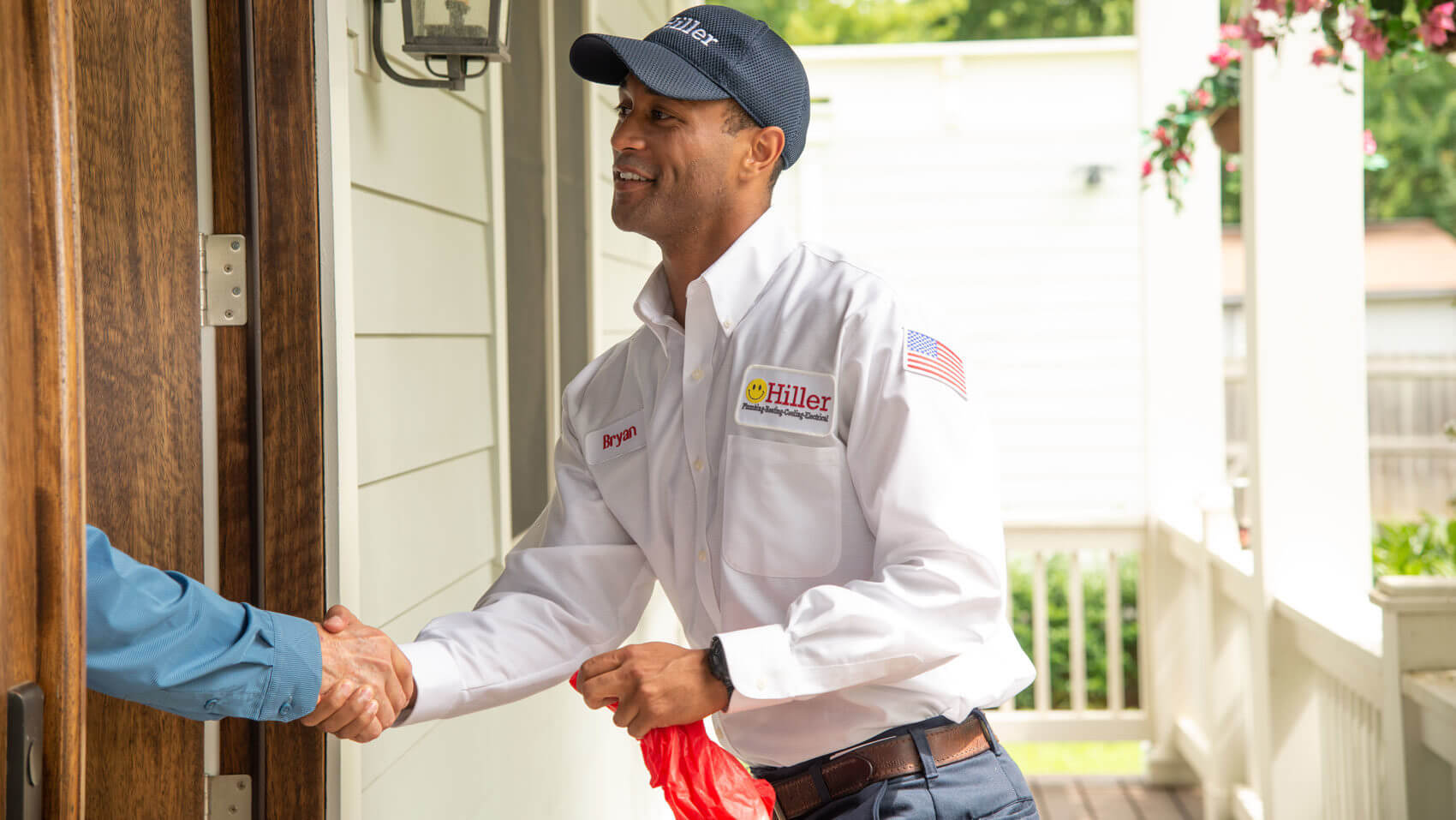Heating Repair: What to Do When Your Heat Cuts Out
Enjoy reading the latest DIY articles and saving money?
Receive our latest helpful hints, tricks and savings, directly to your inbox.
Posted March 11, 2020
Did you know that home heating and cooling account for half of an average household’s energy use? That means if you have the typical household energy bill of $2,000, $1,000 goes towards your HVAC use alone. It could even be higher if your heater or cooler is no longer running efficiently. Worse, an unkempt HVAC system is more likely to break down when you need it the most. That could mean being heatless during the coldest days of the year. If this happens, the first thing you likely want to do is search for “heating repair near me” online.
After all, being cold isn’t only uncomfortable; it also has adverse health effects. Fortunately, you have several heating repair options, starting with simple DIY fixes. You can also rely on licensed and experienced HVAC techs for 24/7 emergency repairs. Ready to learn what you can and should do in case your heater goes out in the dead of the winter? Then let’s dive right into it!
Safety First

In the US, almost five in 10 homes use natural gas as a source of energy. If your heater relies on natural gas and it suddenly breaks down, pay attention to any odors you might smell.
If your house smells like rotten eggs, it’s possible that you have a gas leak. That’s the sulfuric smell of mercaptan. This chemical makes methane — the primary component of natural gas — easier to detect.
Keep in mind that residential natural gas consists of between 85% to 95% methane. Methane itself is odorless and colorless, but it’s also a flammable gas. Moreover, exposure to this can cause health issues like headaches, nausea, and suffocation.
That said, leave your home right away if your heater conks out and your home smells like a hot spring. If you can, open windows as you exit and call the natural gas provider to let them know about the potential leak.
What You Can Do Before Googling “Heating Repair Near Me”

If your house smells fine, it’s possible that the heater’s thermostat is to blame for your frigid home. So, before you rush over to google “heating and air conditioning repair near me”, give these DIY steps a shot first.
Inspect the Thermostat
A thermostat in a home heating and cooling system senses and controls temperature. Think of it as the “brain” of your HVAC system — it instructs the unit to either provide heated or cooled air. Then, once the temperature has reached the desired level, it tells the unit to stop heating or cooling.
With such a critical role, it’s easy to see why you can trace most signs of HVAC problems back to a faulty thermostat. That’s why you should inspect the thermostat first as your “no heat” issue may only be due to bad or dead batteries. It’s also possible that someone accidentally switched the control to “Auto” or “Cool”.
Switch the batteries first and make sure to set the thermostat to “Heat”. Wait for a few minutes to see if your heater will now warm up your home.
Check Your Circuit Breaker
The thermostat may also have shut down after your home’s main circuit breaker tripped. A power outage may have triggered the breaker to automatically shut off. This is normal, as breakers should trip to prevent potential electricity overloading.
In case an overload did occur, you only have to switch the breaker for your HVAC unit back to “ON”. This should restore power to the thermostat.
Make Sure Your Heater’s Filter is Clean
Your heater may not be warming your home enough because of restricted airflow. A likely culprit is a dirty filter. The heated air won’t exit the vents or ducts if there’s a lot of dirt and debris trapped in the filter.
Hopefully, your heater’s filter is washable, as this means you only have to clean it to reuse it. If not, then you need to purchase a replacement filter.
Call for Help

If these troubleshooting steps don’t work, it’s time to look up “heating and cooling repair near me”. Your heater may have failed (and needs repairs) due to the following reasons:
A Faulty Thermostat
A thermostat on its last legs will keep glitching until it finally dies. This includes frequent temperature misreadings, which will lead to inefficient heating. A faulty thermostat is also likely to cause your HVAC unit to short-cycle.
If replacing the batteries doesn’t help, there may be loose connections or parts. If the thermostat won’t turn on, a blown fuse may be to blame. Either way, you need repairs or part replacements ASAP to get your heater running again.
Failed Fan
The main role of an HVAC fan is to blow out and circulate heated (or cooled) air. If this gets damaged or loose, it won’t properly push air out of the vents or ducts. Dirt and debris build-up on fan blades also lead to inadequate heating.
Damaged Blower Motor
For the fan to work in the first place, the blower motor should be supplying it with power. So if your heater’s motor dies, the fan won’t rotate and no heated air will come out of the unit.
Blower motors often fail due to corrosion, which poor venting and ductwork can cause. Condensation, which is common in air conditioners, can also spread to your heater. When moisture enters the heater, oxidation can occur within the motor.
An overloaded (and tripped) circuit breaker can also overheat your heater’s motor. Shot bearings may also cause motor failure.
Broken Belt
Some HVAC units have a belt-driven motor that transfers rotational energy to the fan. This energy then powers the fan and makes it move to blow out heated or cooled air. For the belt to transfer enough energy to the motor though, it needs to have proper tension.
HVAC belts can become slack over time, due to age and damage, or because of dirt build-up. Incorrect tension can then overstress the belt, further speeding up its degradation. It won’t take long before this cracks and snaps the belt.
Once the belt breaks, you need to have it replaced ASAP. Otherwise, your HVAC unit’s motor won’t be able to move the fan to circulate heated air.
If you smell burning rubber, turn off your HVAC unit and call a heating and air repair specialist right away. This smell is likely from an overstressed or broken belt. The friction can damage not only the belt but also other key parts like the motor and fan.
Cracked Heat Exchanger
A heat exchanger either heats the air in a furnace or the water in a boiler. It does so by burning natural gas, liquefied petroleum gas (LPG), and other heating oils.
As the heat exchanger burns these energy sources, it also creates combustion gases. At the same time, it keeps these gases trapped inside to prevent gas leaks. These gases include carbon dioxide (CO2), carbon monoxide (CO), and nitrous oxide (NO).
Over time, the heat exchanger will develop stress cracks and other damages. After all, the exchanger contains metal components that expand and contract with heat. After many years of doing this, these metals will wear away.
When this happens, all those combustion gases can leak and contaminate the air in your home.
Either way, these gases are harmful and could even kill. CO poisoning alone lands some 50,000 people in emergency rooms every year. Worse, it claims at least 430 lives each year.
If your heater suddenly dies and your house smells like a funeral home, leave right away. A formaldehyde-like smell is a solid indicator that you have a cracked heat exchanger. Ring up your local HVAC technician for immediate heating repairs.
You should also consider investing in high-quality carbon monoxide detectors at home. These devices have sensors that alert them to the presence of dangerous CO levels in the air. When there’s an elevated amount of indoor CO, the detectors will go off and sound an alarm.
Some CO detectors are also combined with smoke sensors and alarms. These are multi-sensor devices that will notify you of possible fires or gas leaks.
Your Professional Heating Repair Options

If your heater breaks down during the day, schedule a same-day HVAC repair appointment. This way, you can have your heater up and running before the sun goes down. This is especially important if you don’t have a space heater to serve as alternative heating.
If the malfunction happens late at night or in the wee hours of the morning, opt for emergency HVAC repair. Without the sun, you and your loved ones are at a higher risk of hypothermia.
Hypothermia happens when the body loses more heat than it can generate. This causes a serious drop in body temperature, which can turn into a medical emergency. Any lower than 95 F, and the heart, nervous system, and other organs will start to fail.
Although hyperthermia in summer is also dangerous, hypothermia claims more lives. In fact, between 2003 and 2013, there were 13,400 hypothermia deaths in the US.
Don’t risk your health and the safety of your loved ones just because of a failed heater. Emergency heating repair may cost a bit more than normal services, but it’s worth it.
In the Meantime: Stay Warm While Waiting for the HVAC Technician

Right after scheduling HVAC repair, have everyone layer up. Get everyone under the thickest, warmest blankets you have. Use any alternative warmers, such as electric blankets and your fireplace.
It’s also best to gather your family members in one area. This will help everyone stay warm even as your bodies lose heat.
It’s best to have everyone in the kitchen, where you can cook something, which will generate heat. Eat or drink something hot to trigger digestion, which generates internal heat. The heat from a mug will also warm up your freezing hands.
Close all curtains or blinds, and if you have extra drapes, hang those up too. Place some rolled up towels or bunched up pillows by the cracks under your doors. This will help prevent the cold air from entering your home.
Bonus Tip: HVAC Maintenance to Keep It From Breaking Down in the First Place

HVAC preventative maintenance will help keep your heater and cooler efficient. It also helps extend the lifespan of your HVAC system, so its parts won’t break down earlier than expected. Moreover, an efficient heating and cooling system can help you enjoy 10% to 40% in energy savings.
Here are some of the HVAC maintenance tasks that you can do on your own to prevent early breakdowns:
Always Keep Your HVAC Filters Clean
Don’t wait for filthy filters to restrict airflow that could also cause the unit to overheat. A new (or clean) air filter can reduce your home’s energy consumption by up to 15%. Besides, letting the filter clog up with debris can cause poor indoor air quality.
Inspecting your filter at least once a month will help you monitor if you need to wash or change it. Most filters are effective for up to three months, but if you have pets, you need to change or wash them more often. Do the same if there’s a nearby construction area or if you live near a busy road.
Make Sure Nothing Blocks the Indoor and Outdoor Units
The indoor and outdoor units of your HVAC system should be free of any blockage. For the indoor unit, there should be at least two feet of clearance. Make sure no objects (like furniture) blocks the indoor unit.
The outdoor unit is more prone to blockages, such as tall grass, leaves, and other debris. As part of your HVAC maintenance, keep the grass mown and remove any debris from the outdoor unit.
Stop Suffering from the Cold: Get Your Faulty or Dead Heater Fixed Now

There you have it, your ultimate guide on what to do if your heater suddenly dies on you. Try troubleshooting the unit first before you look up “heating repair near me” online. If these don’t do anything, then pick up the phone to get HVAC repair techs to come to your rescue right away.
If your heater conks out in the middle of the night, you don’t have to wait until the next day to get it fixed. Here at Hiller, our HVAC technicians are available 24/7/365.
Get in touch with us now so we can send a highly-experienced to your home for emergency heating repair!
 Daily Promotion
Daily Promotion
FREE 10-Year Extended Warranty with Generac
Bonus protection for your backup power.
Get Promotion